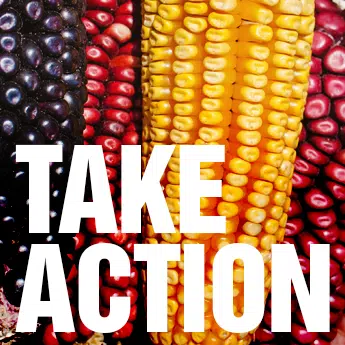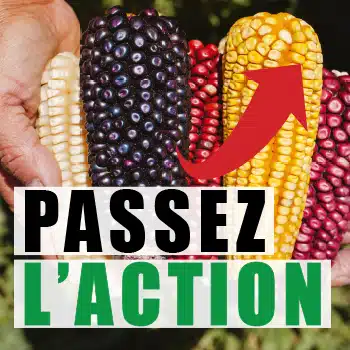Contamination Status in Canada is Unknown
Wednesday May 29. Ottawa. – Today, the United States Department of Agriculture (USDA) confirmed that Monsanto’s unapproved genetically modified (GM, also called genetically engineered) herbicide tolerant wheat was found growing in a farmer’s field in the state of Oregon (1).
The USDA has not identified the source of contamination and does not know how widespread the contamination is. No contamination has been discovered in Canada.
“This contamination incident is extremely alarming,” said Lucy Sharratt of the Canadian Biotechnology Action Network, “The Canadian government needs to begin taking the risks of contamination from GM crops very seriously.”
“Canadian farmers are still eliminating GM flax contamination that was discovered 10 years after farmers successfully stopped GM flax from entering the market” (2).
Monsanto asked the Canadian and US governments to approve its GM herbicide tolerant (Roundup Ready) wheat but withdrew its requests in 2004 after intensive farmer and consumer protest across North America and in our export markets. There is no GM wheat approved anywhere in the world. According to the USDA, 2005 was the last year that this GM wheat was tested in field plots in the US. Canadian government records show that 2004 was the last year Monsanto field-tested GM wheat in Canada.
“Contamination risks from growing and field testing GM crops are not fully assessed by Canadian authorities because the government doesn’t care about the economic impacts of contamination,” said Sharratt. “We need a moratorium on all new GM crop approvals and field tests until the contamination risk is adequately recognized in regulation, and the environmental, economic and social impacts are fully evaluated. The Canadian government needs to take urgent steps to stop the release of GM alfalfa, for example.”
This latest case of genetic contamination is, unfortunately, not a rare event (3). In 2006 the USDA announced contamination from unapproved GM rice, an event that ultimately devastated global markets for US rice farmers (4).
“How many cases of genetic contamination will it take before governments learn the lesson and apply the precautionary principle to GM crops and food?” concluded Sharratt.
-30-
Notes:
(1) http://www.aphis.usda.gov/newsroom/2013/05/ge_wheat_detection.shtml
(2) https://cban.ca/flax
(3) http://www.gmcontaminationregister.org/index.php?content=re®=0&inc=2&con=0&cof=0&year=0
(4) http://www.greenpeace.org/international/en/publications/reports/bayer-cropscience-contaminates/
For more information: Lucy Sharratt, Coordinator, Canadian Biotechnology Action Network, 613 241 2267 ext 25






